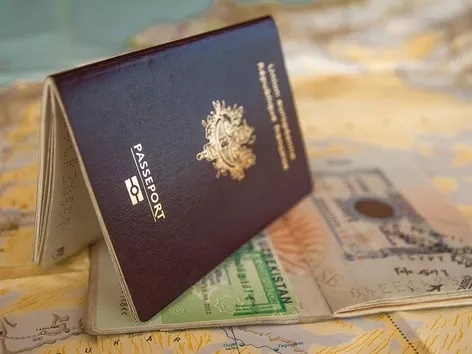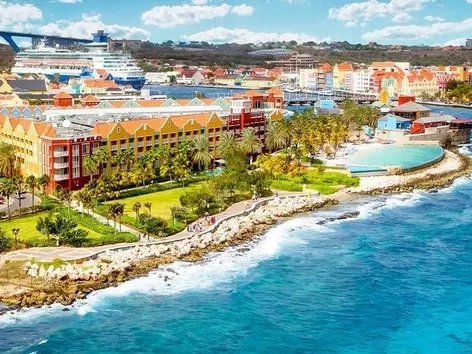Domicile vs. Residency: What is the Difference?

The terms "Domicile" and "Residence" are concepts that are often used interchangeably and taken for the same thing. However, they have different legal definitions and implications. Learn the difference between these two definitions
Often the terms "Domicile" and "Residence" are used quite loosely, as interchangeable. However, they differ significantly and, despite having a common meaning, are often used in different contexts. It is important to understand where the deadlines differ, especially in the case of legal and tax obligations, and if you are planning to move abroad or start the journey to a second passport.
What is the difference between "Domicile" and "Residence"? We will find out further.
What is "Domicile"?
The term "Domicile" usually refers to a person's place of permanent residence. That is, it is used for the country to which a person always returns, regardless of where he lives.
Usually, the country of "Domicile" is the person's country of origin, that is, the one where there are strong cultural ties, family ties, and where he may have a business or some real estate. However, this is not always a 100% definition, because the "Domicile" country can also be the state where a person permanently lives and works.
What is "Residence"?
“Residence” usually describes a place where someone lives or stays, usually temporarily. This can refer to a physical location, such as a house or apartment, or a wider area, such as a city or country.
A person's residence is usually determined by where he spends part of his time and where he has a legal basis for being. Residence may still have legal implications, such as choosing a person's right to certain benefits or services, depending on the country.
In order to safely move, travel or work in a new country, you will need health insurance. You can issue an extended policy on our website using the link.
What is the difference between "Domicile" and "Residence"?
Despite the generally accepted definitions of "Domicile" and "Residence", it is not always possible to speak of a clear distinction between these concepts. In each specific case, it is important to properly analyze and learn more about the country's laws regarding residence and stay. Sometimes they have so much in common that the difference between them becomes even more confusing. For example, the country's requirements for granting a permanent residence permit may be the same as "Domicile", in particular, it is necessary to spend more than 183 days in the country.
However, the key difference remains: "Domicile", because it has more legal weight. A natural person is bound to his country of residence in terms of legal and tax obligations, responsibilities and obligations. Although a change of residence is possible, the main difficulty is to prove it.
Residence is a more flexible and temporary concept. A person can have several places of residence, and they can also be changed frequently.
Legal consequences of "Domicile"
Residence is important for establishing several legal constructs, such as the right to vote, receive government benefits, file lawsuits, and cooperate with regulatory authorities. Among other things, the determination of the place of residence becomes decisive for taxation. Below are the three main areas of taxation that are affected by where you live:
- Income tax.
- Capital gains tax.
- Inheritance tax.
Your place of residence also becomes important when you need to manage your estate in the event of your death. It also plays an important role if you own financial or property assets abroad.
Possible obstacles
“Domicile” can be more difficult to obtain and change than “Residence”. Domicile” requires a person to demonstrate an intention to leave their previous place of residence and establish a new one. Demonstrating this intention usually involves a more significant step, such as buying a new house, moving as a family, etc.
- Requirements for a place of residence:
Many countries require individuals to live for a minimum period of time before claiming residency. The length of stay may vary depending on the country and may range from a few days, months to several years.
- Proof of intent:
To obtain “Domicile”, a person must intend to make the country his permanent residence. The process can be difficult as it requires long-term commitments such as having real estate, employment and social connections.
- Legal and administrative barriers:
Obtaining residency often involves complex legal and administrative procedures, such as applying for visas and work permits, registering with local authorities, and complying with tax and immigration laws. In some countries, there are special forms of permanent residence that a person must formally submit for approval.
- Language and cultural barriers:
Moving to a new country can be difficult, especially when there are significant language and cultural differences. Knowing the local language can make it easier to make social connections and integrate into the local community. Undoubtedly, this can affect habitability.
- Financial considerations:
Moving to a new country can be expensive. A new place to live can add to your cost of living or additional costs to start a new business or source of income. Residency may require significant financial resources to cover housing, education, and health care costs.
It is important for expats to understand the differences between the concepts of "Domicile" and "Residence". Also, be sure to consider that each country has its own individual requirements.
We will remind you! Although the procedure for obtaining citizenship varies from country to country, most countries adhere to the two basic principles of Jus Soli and Jus Sanguinis. We talked about the main difference between the procedures and the features of each of the systems earlier.
Igor Usyk - Head of Migration department at VisitWorld
To ensure a safe move to a new country, I advise you to consult a specialist. My colleagues, qualified specialists with a legal education, will help you avoid unpleasant situations during migration.
Products from Visit World for a comfortable trip:
Travel guide for 200 countries;
Legal advice from a local specialist on visa and migration issues;
Travel insurance around the world (please select the country of interest and citizenship to receive services);
Medical insurance all over the world.
We monitor the accuracy and relevance of our information, so if you notice any errors or inconsistencies, please contact our hotline.
Frequantly
asked questions
Can a person have several places of residence?
Can a person change his place of residence?
How does residence affect tax liability?
Recommended articles
2 min
Travels
Transit Schengen Visa: who needs a package of documents and how to apply?
Citizens of third countries transiting through the airport of an EU country must have an appropriate visa. Find out the conditions for obtaining and the procedure for issuing a transit Schengen visa
19 Sep. 2024
More details2 min
Expats
How can an expat file a declaration in Germany and get their taxes back?
Foreigners working in Germany must submit a declaration every year to verify the amount of taxes paid. Find out the procedure for submitting a declaration and how expats can get back overpaid taxes
21 Sep. 2024
More details3 min
Residence permit
EB2 NIW: Frequently Asked Questions
The EB2 NIW visa allows foreign professionals whose work is in the national interest of the United States to obtain work authorization under a simplified procedure. We have collected answers to the most common questions related to this permission in this article
20 Sep. 2024
More details2 min
Travels
Life In Curaçao As An Expat: Detailed Guide for Foreigners
Curacao is an island in the Caribbean, which attracts expats with heavenly living conditions and economic prospects. Find out what are the advantages and disadvantages of moving here, what is the procedure for obtaining a residence permit and what is the list of benefits that an expat will receive after moving
22 Sep. 2024
More detailsAll materials and articles are owned by VisitWorld.Today and are protected by international intellectual property regulations. When using materials, approval from VisitWorld.Today is required.
